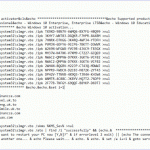Tax is usually the buzzword at the end of every financial year, with individuals and organizations rushing to file their tax returns. In the rush of the looming deadline and the desire to save tax, one may choose an inefficient tax-saving method. With proper tax planning, you will be able to identify the avenues you want to take to save tax, well in advance, and in accordance with your specific needs.
The Income Tax Act of 1961 allows certain deductions which can be claimed to save tax at the time of filing IT returns. Such deductions would be subtracted from the gross total income and the tax would be levied on the balance income as per the income tax slabs in force. A prudent investment planning compiled with proper financial strategy can help you to save more tax on your income.
Table of Contents
How to Save Income Tax
Park your Money in 5-year Fixed Deposits
Fixed Deposits (FDs) are one of the preferred investment options for many investors since they provide assured returns along with lower volatility, as compared to other investment avenues. Apart from this, you are also entitled to avail certain tax benefits by parking your savings in a fixed deposit scheme.
By investing your money in multiply fixed deposits with a lock-in period of 5 years, you can avail tax exemptions up to Rs.1.5 lakh under Section 80C. However, if you have large sums of money parked in FDs, you may incur tax deductions at the source since the interest earned on it is taxable. You can anyway furnish Form 15G 15H to claim nil or lower the deduction of the TDS amount.
Tax Saving through Health Insurance Plans
Apart from securing you financially against medical contingencies, a health insurance policy also enables you to save tax under Section 80D, Section 80DD and Section 80DDB of the IT Act. You can claim deductions for paying premiums towards health insurance for you and your family.
Amendments in the Union Budget, 2018 have further extended these benefits by raising the exemptions under these sections. A maximum deduction of Rs.25,000 is allowed for paying health insurance premiums for your family. You can also claim an additional deduction of Rs.30,000 if you are paying premiums towards medical insurance of your senior citizen parents.
Invest in Saving Schemes to Save Tax
To encourage the culture of savings and to direct your savings into the right avenues, the government of India allows certain tax deductions provided that you are investing your savings in the instruments as specified in Section 80C, Section 80CCC and Section 80CCD of The Income Tax Act.
There are many specified saving schemes in India like Public Provident Funds (PPF), National Savings Certificate (NSC), National Pension Scheme (NPS), etc., where you can claim your investments as deductions to save tax. The maximum combined deduction under these 3 sections is Rs.1,50,000.
Restructuring your Salary Helps you to Save Tax
Your taxable income is always different from your gross salary. This is because there are many allowances and reimbursements for expenses incurred due to your job requirements and hence, they are not considered as part of your income. As per the Income Tax Act, taxes are not levied on such forced expenses like your house rent, traveling fees, medical treatment, etc.
In case you are not getting these perks, you can ask your employer to restructure your salary. Make sure that these allowances are part of your net salary and hence you can avail tax exemptions on these expenses. Note, that you will be required to furnish proof of your expenses to claim these deductions.
Save Tax by Repaying your Home Loans
If you have taken a home loan for purchase, construction or improvement of your house, you can significantly reduce your tax liability by simply paying your loan EMIs. You are entitled to any tax savings on home loans under the various sections of The Income Tax Act.
tax saving investments under 80C allow a deduction of up to Rs.2 lakh from your taxable income for repaying the principal component of your home loans while you can claim an exemption of up to Rs.3 lakh on the amount that you pay towards the interest of your home loan under Section 24. First time home buyers can avail additional tax benefits of Rs.50,000 as per Section 80EE, over and above the benefits accrued under the Sections 80C and 24.
Tax planning by taking a home loan is highly advisable as the deductions can be claimed under three different sections resulting in significant tax savings. With pre-approved offers on a gamut of loans from Bajaj Finserv, it’s easier than ever before to avail financing and also reduce your tax liability. Just share a few basic details to avail yours.










